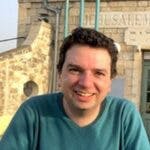Published: 11 October 2022
Last updated: 5 March 2024
Pop-up Judaism, LGBTQI+ inclusion, Orthodox growth: ITTAY FLESCHER returns to Australia and notices significant changes in the community where he grew up and taught.
Five years after leaving my home in Melbourne for Jerusalem, I was privileged to make my first visit back to Australia as a guest of Limmud Oz last month. One of the first places I went to meet friends was the statues on the corner of Hawthorn and Balaclava roads, which was the starting point for many a lap of Caulfield Park.
Treading the well-worn jogging track that has heard so many of the stories about Jewish Melbourne, I realised that although so much of the community where I lived and worked looked the same, there have been some significant changes.
The growing strength of Orthodox Judaism
This is by far the fastest growing and most vibrant part of the community, from the daily Torah classes at the Kollel beth Hatalmud educational institution in Balaclava to the many minyanim in the many Chabad shules across the bagel belt. Spanning from the conservative Adass community to the more liberal Shira, JOFA and Hineni, there seems to be a shade of Orthodoxy for almost every Jewish expression.
Particularly notable was the Ohrsom Student program, which brought its version of modern Litvish Haredi Judaism from South Africa to the mostly secular under-25 graduates of Scopus, Bialik and King David.
Its recruiting method is straightforward. Offer a jam-packed, high-quality, two-week Israel program in nice accommodation for only $1000, which is very popular with this demographic, in exchange for the participants attending weekly classes for a year after the trip at the Ohrsom Centre located above Central Shule in Caulfield.
Unlike Chabad, which places a heavy emphasis on the rebbe, mashiach, tefillin and Shabbat candles, the Ohrsom strategy embraces positive psychology - describing its purpose as "offering a framework which equips participants with knowledge, understanding and tools for life". Many of the classes focus on life skills such as managing anger, finding meaning and meditation, rather than the traditional Talmud study in Chevruta (pairs) more commonly associated with other streams of Orthodoxy.
The proliferation of shule choirs in almost all the establishment Orthodox congregations was also noticeable, especially at Caulfield Shule, which brought out the 10 members of Kolot Min Hashamayim troupe from Israel. I heard them sing in Caulfield Park on the afternoon of Rosh Hashanah, sounding like a very polished barber shop quartet, wowing their fans in the rainy park with traditional prayers such as Adonai Malach to the tune of Queen's We will rock you.




